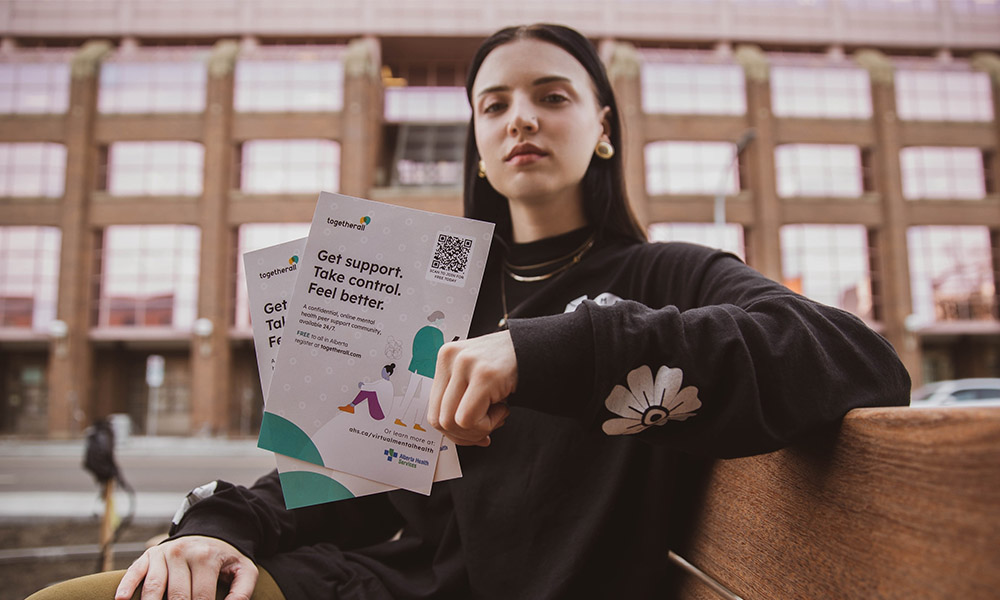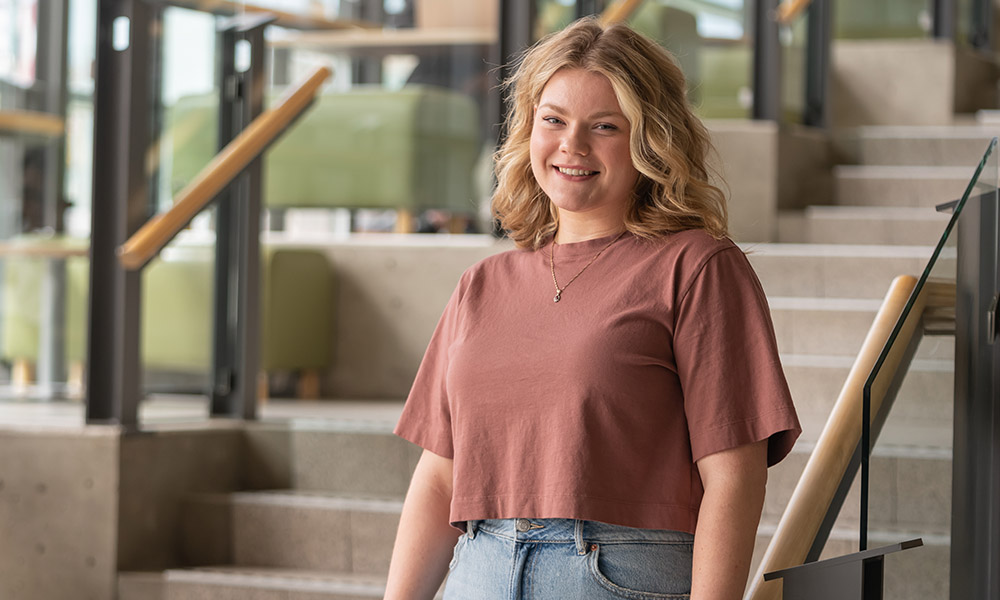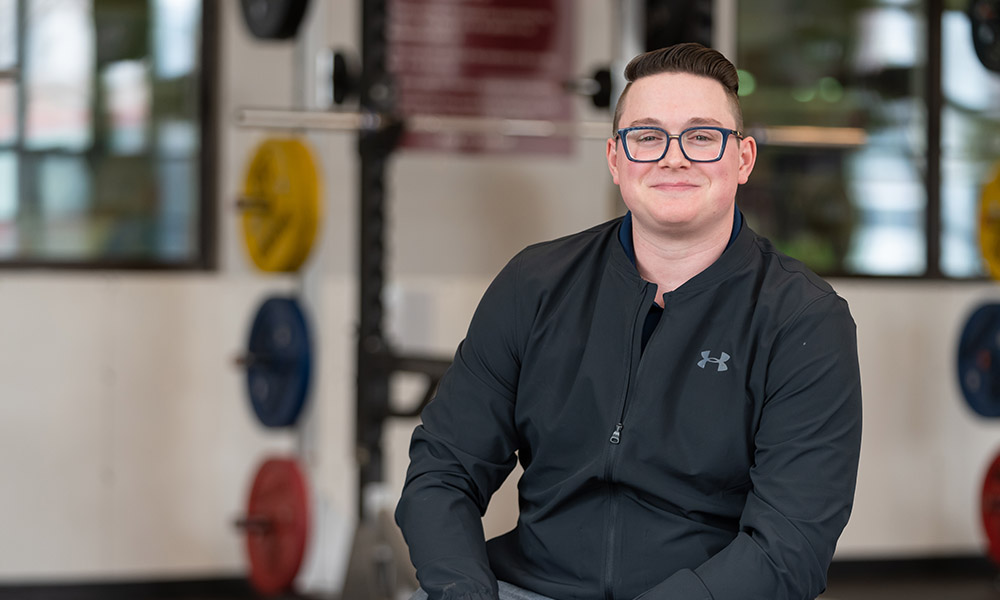Uniforms and institutions might spring to mind when you think of correctional services, but the field is more expansive and diverse than it might first seem.
Self-directed projects in Fiona Gironella’s CORR 224 field placement course had students in agencies across the city, illustrating perfectly how the corrections overlaps and intersects with addiction recovery, supportive housing, community-based health services, Indigenous programs and mental health.
“Correctional services professionals contribute to community safety and promote positive growth and change in the individuals they support and supervise,” says Gironella, assistant professor in the Department of Public Safety and Justice Studies. “We’ve been developing community partnerships for 49 years and have 75 agencies and programs that provide field-based learning and mentorship for our students.”
Students took full advantage of those partnerships in a field-based community engagement project that acted as a capstone in the Winter term. After choosing a client group they were interested in working with, students were paired with an agency – from the Mustard Seed and Our House Addictions Recovery Centre to the Edmonton Institution for Women and the Elizabeth Fry Society – to identify a gap they could help fill.
“We’re thrilled with the results,” says Gironella. “The students created innovative, impactful projects that were valuable – and several have committed to volunteer with their partner agencies to continue their projects over the summer.”
Here are just a few examples.
Student Snapshot: Supporting people on the front lines of the opioid crisis

“Throughout the Correctional Services program, we learn that if we don’t take steps to care for ourselves, we won’t be able to sustain a career taking care of other people. I’m very vocal about mental health and self care, so I was grateful to have the opportunity to express that passion and really run with it.
I started by researching how community-based agencies and health-care providers in the inner city were responding to the opioid poisoning epidemic. As I interviewed nurses, support workers, overdose response outreach workers, social workers and students, I heard how front-line workers responding to drug poisonings and overdoses needed resources to help them feel supported and connected to each other – that they needed to talk to people who have seen what they’ve seen and know what they know.
It seemed like they needed a unified, confidential mental health platform, and I was stoked to discover that my dream resource already existed. Togetherall, a confidential platform supported by Alberta Health Services, is available 24/7 and monitored by trained mental health professionals. Front-line workers can post as much as they want and talk in real-time with other people.
During my interviews, nobody mentioned Togetherall, so I thought there still might be something I could do to help make sure people knew about this resource. I got to work and focused my energy on networking and attracting traffic to the site.
I sent a lot of emails, made tons of phone calls, did more interviews and ran around the city delivering posters and cards. I know that I may never know if all of that work made an impact, but I’ve learned that “not knowing” is sometimes just part of the work. Even when outcomes can’t be measured, it’s important to keep putting your heart into what you do.”
–Monica Hauck, 2nd year, Correctional Services
Student snapshot: Journaling at the Edmonton Institution for Women
 “I believe in the resiliency of people and that when we have proper support, we are all capable of becoming the best version of ourselves. So when I learned that there was a lack of wellness programming available to female offenders at the Edmonton Institution for Women, particularly in the maximum-security unit, I decided that would be the focus of my project.
“I believe in the resiliency of people and that when we have proper support, we are all capable of becoming the best version of ourselves. So when I learned that there was a lack of wellness programming available to female offenders at the Edmonton Institution for Women, particularly in the maximum-security unit, I decided that would be the focus of my project.
Journaling has given me an outlet to express difficult emotions, personal confessions and self-exploration, and I wanted to share the tools that I found helpful.
I facilitated three 40-minute expressive journaling sessions. I started with a talk about the benefits of journaling, shared some examples of how it had helped me and offered some instructions on getting started. Then we gave it a try. I played some relaxing music while they completed their journaling prompts.
Unexpectedly, one of the sessions was one-on-one. The inmate was very kind to me and excited to learn about journaling. After she completed her prompt, she showed me how to draw an eye and what it represented for her. At that moment, the facilitator/learner roles switched. It reminded me of her humanity and reinforced the idea that women who are incarcerated have much to give and share.
After spending two years learning about corrections from my professors and my textbooks, being able to contribute in an active role gave me an experience and perspective that I will look to for the rest of my career.”
–Amanda Dombroski, 2nd year, Correctional Services
Student Snapshot: Using exercise to help people recovering from addiction

“One of my best friends has struggled with alcohol addiction for about six years. He’s told me that during his most trying times, exercise helps keep him busy, so he’s not always thinking about relapsing. When I was choosing a community engagement project, I researched how exercise can help people recovering from addiction and started creating and facilitating a workout program at Our House Addiction Recovery Centre.
My profs have always said that if you treat people with respect and humility, they will typically give it right back to you. So that’s what I did. We talked about anything and everything. I brought Gatorade and protein bars and made personal duo-tangs for their workouts. They were small things, but they meant something.
And after the first workout, both guys said, “Today, you made a difference for us.” I had to sit down. My friend had once told me that people with addiction don’t think about a year from now, a month from now, a week from now or even tomorrow. It’s too overwhelming.
So when those guys told me that workout would help them get through the rest of their day, it was incredible. I can’t even begin to explain the feeling. It made me want to do better for myself and them.”
–Cole Blais, 2nd year, Correctional Services
